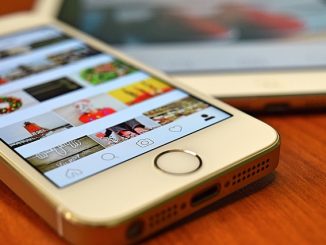News of Steve Jobs’ departure has overshadowed rumors over Apple’s next iPhone, but the company’s next smartphone is still on its way. It will likely reach stores sometime in October.
I use an iPhone, but I sat out the last two releases of the product that arguably turned Apple into the tech industry’s hottest consumer brand. After nearly three years, I still use my trusty iPhone 3G. I’m wondering whether this year’s anticipated new model is going to be good enough to inspire me to upgrade.
I can’t exactly ask Apple (AAPL), which is famously secretive about products under development. As new CEO Tim Cook put it, “Apple is not going to change.” So I have to guess along with everyone else until the company makes one of its long-awaited “surprise” announcements.
I know exactly what I want my next smart phone to have: 4G network capability. But not just any old 4G. I want 4G LTE. (LTE stands for “long-term evolution,” which is tech speak for “we aren’t able to meet 4G specs yet, but this is as close as we can get.”)
Despite the confusing similarity in names, the iPhone 4 currently in stores is not a 4G phone. I don’t think Apple will allow itself to fall too far behind the marketing curve, so I believe the next iPhone will be labeled “4G.” But according to most guesses, Apple’s next phone won’t offer 4G LTE.
Before he succeeded Jobs as Apple CEO, Cook said during a quarterly earnings conference call that first-generation LTE chipsets “force a lot of design compromises with the handset” and that some of those were compromises Apple was “just not willing to make.” Current LTE chips add significant bulk, which would interfere with Apple’s emphasis on slim and sleek design.
This will not necessarily stop Apple from calling its next phone 4G. The distinction between 3G and 4G networks is blurry. The International Telecommunications Union (ITU) originally created the term “4G” to refer to networks with a specific peak speed, which had not yet been achieved. But carriers quickly co-opted the term to market their own most advanced networks, regardless of whether they met the ITU standards. HSPA+, WiMAX and LTE have now all been termed 4G by carriers. At the end of last year, the ITU threw in the towel and said the term 4G could be applied to “LTE and WiMax, and to other evolved 3G technologies providing a substantial level of improvement in performance and capabilities with respect to the initial third generation systems now deployed.”
But not all technologies that claim to be 4G are equal. HSPA+ is noticeably slower than WiMAX or LTE. My carrier, AT&T, was Apple’s original iPhone marketer in the United States, and it has clung to the idea that HSPA+ can be called 4G within the ITU’s revised definition.
Like Verizon (VZ), AT&T (T) is basing its long-term strategy on LTE. However, AT&T is losing the LTE rollout race. The carrier’s website still claims it will have LTE in “in select markets” this summer but, given that the summer is almost over, that’s starting to seem unlikely.
Verizon, which began offering the iPhone this year, already has LTE in “117 Markets and 98 major airports”, according to its website. It also has an assortment of non-iPhone devices ready to tap into that network. To continue to appear competitive in the 4G market, AT&T has rolled out an HSPA+ network, calling it 4G, while it slowly get its 4G LTE network in place.
To get LTE right now, I would need to switch both my carrier and my handset. HTC’s Thunderbolt, which runs on Verizon’s LTE network, is an attractive possibility. But I’m already used to the iPhone’s software, and I value the fact that my iPhone integrates easily with the various other Apple devices in my life. So as long as Apple gets an LTE phone to the market in the reasonably near future, I’m willing to wait. I am likewise willing to give AT&T more time to get its LTE network into the field.
Oddly, Verizon has teamed up with AT&T to give me a strong incentive not to switch to Verizon’s already-available LTE network. Neither carrier offers new subscribers an unlimited data plan anymore. Both AT&T and Verizon now cap their customers’ monthly flat-rate data usage. Verizon, which just put its tiered system in place in July, charges $10 a gigabyte for users who go over their limits.
My old AT&T plan is grandfathered, and right now, the company allows the unlimited data usage to continue even when the customer gets a new phone. If that policy applies to future 4G LTE phones on AT&T’s network, I will be better off staying with AT&T. Those new high-speed LTE networks are going to burn through data in a hurry, making it easier to incur unexpected overage charges if I give up my flat-rate deal.
It will be interesting to see how AT&T handles the rollout and pricing of its network, and whether Apple is willing to give up its cutting-edge image by releasing a new iPhone that lacks 4G LTE. Remember, Apple likes to surprise people.
I’ll be following it all on my iPhone 3G.
- Bulenox: Get 45% to 91% OFF ... Use Discount Code: UNO
- Risk Our Money Not Yours | Get 50% to 90% OFF ... Use Discount Code: MMBVBKSM
Disclaimer: This page contains affiliate links. If you choose to make a purchase after clicking a link, we may receive a commission at no additional cost to you. Thank you for your support!





I too have an iPhone 3G. It was my first and only smartphone (although I carry a blackberry curve for work, I use it for work email only and really dont consider it to be smart). Unfortunately, my iphone is getting near its end (battery does not hold its charge like it used to for instance). I am hopefully that a new iphone, with whatever it brings, comes out before my current one dies. Otherwise, Apple may lose me as a customer, something I have to figure is true for others. That is not a threat. If my phone dies and I need to replace it, I will get locked into a two year contract. So if its not the iphone 5, the reality is that there may be better options than the iphone 4 at this point. So hurry up Tim (with steve still in the shadows) and get something on the market before all us 3G diehards go elsewhere.